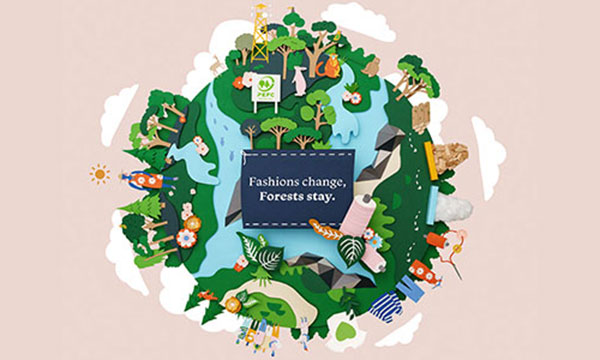
PEFC, the world’s leading forest certification organization, is excited to announce the release of its latest whitepaper, “Enhancing Sustainability through Forest-Positive MMCF Sourcing: A Guide for Fashion Brands and Retailers.” This comprehensive guide empowers fashion brands and retailers to embrace responsible sourcing practices for man-made cellulosic fibres (MMCFs) by emphasizing the importance of sustainable forest management.
The PEFC whitepaper dives into the significance of sustainable feedstock sourcing in the fashion industry, focusing specifically on MMCF materials and the potential environmental and social risks associated with forests. It provides a clear understanding of how PEFC’s comprehensive approach to sustainable forest management effectively mitigates these risks and promotes the preservation and well-being of forest ecosystems. Moreover, it offers practical solutions for brands to ensure the traceability of MMCF materials, enabling them to make verifiable claims about their responsible feedstock sourcing.
The fashion industry, heavily reliant on natural resources and specialized labour, faces substantial consequences when environmental and social implications are not considered throughout the product value chain. Given that man-made cellulosic fibres predominantly derive from forest-based feedstock, it is crucial to be aware of the potential risks that can arise at the forest level and proactively address them. Sustainable forest management encompasses a range of measures to tackle key issues such as biodiversity loss, forest degradation, deforestation, and risks to workers and forest communities. By supporting sustainably managed forests, brands contribute to a forest-positive future by protecting endangered species, restoring forest ecosystems, promoting biodiversity, preventing deforestation, and ensuring safe and fair working conditions while respecting the rights of Indigenous communities.
“We are thrilled to release this whitepaper, addressing the urgent need for responsible sourcing practices in the fashion industry,” said Julia Kozlik, Textile Program Lead at PEFC International. “By leveraging the knowledge shared in this paper, fashion brands and retailers can make informed decisions, support sustainable forest management, and preserve biodiversity.”